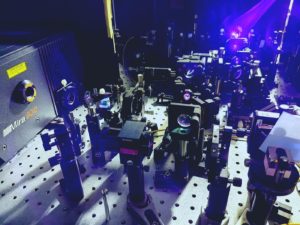 To thrive in ever-changing environments, systems must be able to adapt their actions to respond appropriately to the stimuli they receive. These adaptive systems, or agents, exist at all scales, from microscopic bacteria to self-driving vehicles. Common to all is that they interact and compete with other agents, mounting a drive to develop and deploy increasingly complex strategies. This requires the agent to track ever more information about past and present events, imposing a performance bottleneck and making tools for efficient distillation of relevant information essential. We show that quantum processing can provide a competitive edge, by allowing agents to execute considerably more complex strategies than classical counterparts with access to the same memory capacity.
To thrive in ever-changing environments, systems must be able to adapt their actions to respond appropriately to the stimuli they receive. These adaptive systems, or agents, exist at all scales, from microscopic bacteria to self-driving vehicles. Common to all is that they interact and compete with other agents, mounting a drive to develop and deploy increasingly complex strategies. This requires the agent to track ever more information about past and present events, imposing a performance bottleneck and making tools for efficient distillation of relevant information essential. We show that quantum processing can provide a competitive edge, by allowing agents to execute considerably more complex strategies than classical counterparts with access to the same memory capacity.
We pinpoint precisely which quantum effects are behind these advantages and what structures an agent should adopt to maximize efficiency, allowing them to execute more complex strategies with a smaller memory. We provide a systematic means of encoding strategies for quantum agents that harness these advantages. Moreover, we show that the quantum enhancement in efficiency can scale without bound.
The utility of these findings extends beyond the agents themselves. Agent-based modeling and adaptive systems permeate the quantitative sciences; our work highlights the beneficial role quantum technologies can play in these endeavors.
- Quantum Adaptive Agents with Efficient Long-Term Memories
Thomas J. Elliott, Mile Gu, Andrew J. P. Garner, and Jayne Thompson
Phys. Rev. X 12, 011007 – Published 11 January 2022




